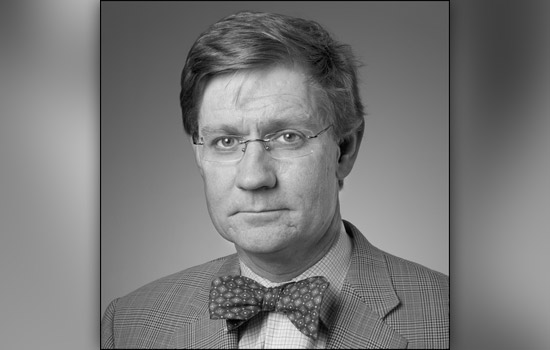RIT Launches Eugene H. Fram Chair in Applied Critical Thinking Oct. 11
Keynote speaker Katherine Hayles to discuss digital media and adaptive thinking
Clarence “Chip” Burton Sheffield Jr.
Rochester Institute of Technology celebrates the launch of the Eugene H. Fram Chair in Applied Critical Thinking and its inaugural chair recipient, Clarence “Chip” Burton Sheffield Jr., associate professor in RIT’s College of Imaging Arts and Sciences.
The event begins at 4 p.m. Oct. 11 at the University Gallery in the Vignelli Center for Design Studies on the RIT campus. Parking is available in G and H lots.
Keynote speaker is N. Katherine Hayles, who earned an undergraduate degree in chemistry in 1966 from RIT and a doctorate degree in English literature from the University of Rochester in 1977. Hayles is a leading authority on digital humanities and will discuss “Are Digital Media Changing the Way We Think?” The professor of literature at Duke University is also the author of the book How We Think: Digital Media and Contemporary Technogenesis.
RIT President Bill Destler believes critical thinking skills, grounded in knowledge, are vital to all academic disciplines and professional fields.
“The world has grown increasingly complex, and it’s important for our students to be habitually inquisitive, well informed and open-minded. Critical thinking will help them develop the kinds of skills, abilities and values crucial to achieving success in all areas of their lives.”
Last November, an anonymous alumnus from RIT’s E. Philip Saunders College of Business donated $3 million to establish the Eugene H. Fram Chair in Applied Critical Thinking. Fram is a renowned retail expert and professor emeritus of marketing who retired from RIT in 2008 after 51 years of teaching in the Saunders College.
Sheffield assumed the three-year critical thinking chair post on Sept. 1 and has been a faculty member at RIT since 2003. He is a distinguished scholar of modern Scandinavian art, architecture and design who holds an undergraduate degree in philosophy from the University of Utah, a master’s degree in art history from the University of Colorado, Boulder, and a doctorate in art history from Bryn Mawr College.
He believes in ensuring that RIT students become active, life-long critical thinkers and fully engaged global citizens.
“Applied critical thinking, finding and assessing the quality of information, and discriminating its meaning and significance is paramount in today’s technologically-infused society as the quantity, ease and speed of its retrieval has exponentially expanded,” Sheffield explains. “It is vital that our students develop intellectual agility as a key competency along with disciplinary rigor, and that they reflect on their core beliefs and convictions, as well as the values that they value.”
Fram, who lives in Los Altos, Calif., will be in attendance at the event with friends and family members. He says this new chair position adds another dimension to the cutting-edge programs being announced by RIT.
“We are very fortunate that Dr. Sheffield was available to be the initial chair recipient,” Fram notes. “Critical thinking uses higher levels of thinking and is frequently cited as one of the skills in studies of educational studies, and by people such as Bill Gates, that many college students lack but need for success in their careers, personal and civic lives.”








